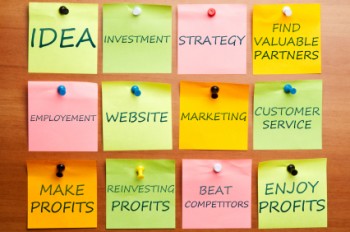Facebook, Foursquare, Twitter, Amazon, Groupon, etc. These were once widely known as startup companies (and some still are). But when did they transition to being known without the startup title, or are they still considered startups? Is it about numbers, environment, profit, or all of the above? Let’s first take a look at exactly what a startup is and whether a successful company such as Twitter can still considers itself a startup, even though it has gained wide success since it was first created in March of 2006 and now has over 500 million users.
What is a startup?
The term first appeared in the 90s during the dot-com boom, when tons of dot-com companies were “starting up,” and was then shorted to startups. This term soon transitioned to being applied to multitudes of companies and not simply designated to dot-coms.
According to Bryce Tarling of techvibes.com, “[Startups] are typically small(er) scale, rely on a small team of investors, and typically aren’t sustainable over the long.” A company that’s new to the market and has essentially just started up is a startup. They have their financing, have done their research, yet are still exploring the market that they have recently entered.
Startups bank their success on a product of service that has not existed before. These companies find a demand for a service or product that has yet to reach the market and is entirely or mostly new. If there is existing demand for that product/service than the startups will essentially have a limited risk facture when it comes to procuring investors.
When the startup changes its status:
There are a ton of opinions on when a startup is no longer a startup. Is Facebook still a startup? For some it’s all about numbers, profit and employees. Adam D’ Augelli, an associate at True Ventures, a San Francisco venture capital firm “states that a company is a startup until it finds product / market fit and has begun to scale.”
But still, there’s an allure to that word that is young, fresh, and exciting. Perhaps the view of a startup has changed? After all, Facebook still considers itself to be a start up. Its consistent innovations are defining factors of the company. Now companies can label themselves however they want. Being a startup is more about company culture, employee interactions, extremely casual work environments, and sincere customer service. So maybe defining your company as a startup is a good thing?
